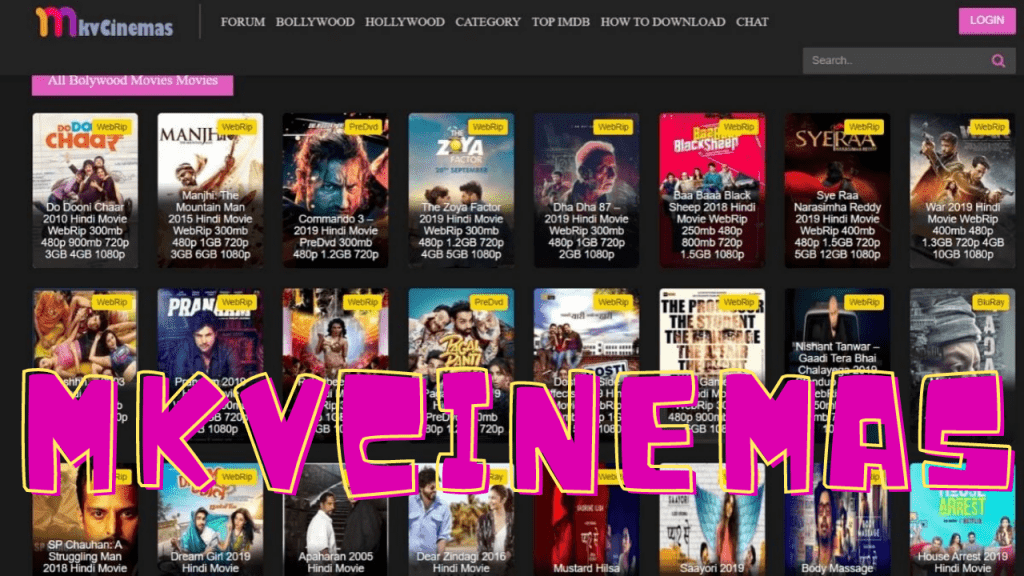Mkv Cinema: The Ultimate Guide To Enjoying Movies And More
Mkv Cinema has become a prominent term in the realm of digital entertainment. With the rise of streaming services and the increasing popularity of high-definition video formats, MKV files have emerged as a favorite among movie enthusiasts. This article aims to delve deep into the world of MKV cinema, exploring its features, advantages, and how to make the most out of your viewing experience. Whether you're a casual viewer or a film aficionado, understanding MKV cinema can elevate your movie-watching experience to new heights.
The MKV format, also known as Matroska Video, is a flexible and powerful container format that can hold an unlimited number of video, audio, picture, or subtitle tracks within a single file. This versatility makes it an ideal choice for both home entertainment and professional use. In this comprehensive guide, we will cover everything you need to know about MKV cinema, including its history, technical specifications, and tips for playback.
As we navigate through this guide, you will discover how MKV cinema stands out from other formats, the best software and hardware for playback, and how to convert your favorite films into MKV files. With so much to explore, let's dive into the fascinating world of MKV cinema and unlock its potential for enhancing your movie-watching experience.
Table of Contents
- What is MKV?
- Advantages of MKV Format
- MKV vs Other Formats
- How to Play MKV Files
- Best Software for MKV Playback
- MKV Conversion Tools
- Common Issues with MKV Files
- Conclusion
What is MKV?
MKV, or Matroska Video, is an open-source multimedia container format that was first introduced in 2002. It is designed to store multiple audio, video, and subtitle tracks within a single file, making it an excellent choice for high-definition movies and series. The MKV format is often used for storing movies and TV shows, particularly those with high-quality video and surround sound.
Technical Specifications of MKV
- Container Format: Matroska
- File Extension: .mkv
- Video Codec Support: H.264, H.265, VP9, and more
- Audio Codec Support: AAC, MP3, DTS, and more
- Subtitle Formats: SRT, ASS, PGS, and more
Advantages of MKV Format
One of the primary reasons for the popularity of MKV cinema is the numerous advantages it offers over other formats. Here are some key benefits:
- Multi-Track Support: MKV files can contain multiple audio and subtitle tracks, allowing viewers to choose their preferred language and settings.
- High-Quality Video: MKV supports high-definition video codecs, making it ideal for watching movies in high quality.
- Open Source: Being an open-source format, MKV is free to use and has widespread support across various platforms.
- Metadata Support: MKV files can store additional metadata, such as cover art and chapter information, enhancing the viewing experience.
MKV vs Other Formats
When comparing MKV with other popular video formats, it's essential to understand the unique features that set it apart. Below is a brief comparison:
MKV vs MP4
- MKV supports more codecs and tracks than MP4.
- MP4 is more widely compatible with devices and software.
- MKV is favored for high-quality content, while MP4 is used for streaming and mobile devices.
MKV vs AVI
- MKV supports modern codecs and is more efficient than AVI.
- AVI files tend to be larger due to less efficient compression.
- MKV is more versatile in terms of features and support.
How to Play MKV Files
Playing MKV files is relatively straightforward, but not all media players support the format natively. Here are some ways to play MKV files:
- Using VLC Media Player: VLC is a popular open-source media player that supports MKV files effortlessly.
- Using Windows Media Player: This may require additional codecs or plugins to play MKV files.
- Using Kodi: Kodi is a powerful media center that supports various file formats, including MKV.
Best Software for MKV Playback
For the best MKV cinema experience, consider using these software options:
- VLC Media Player: Cross-platform and supports a wide range of formats.
- PotPlayer: A feature-rich player known for its extensive customization options.
- MPC-HC: A lightweight media player that offers solid MKV support.
MKV Conversion Tools
If you need to convert your MKV files to another format, there are several tools available:
- HandBrake: An open-source video transcoder that supports various formats.
- FFmpeg: A powerful command-line tool for converting multimedia files.
- Any Video Converter: A user-friendly tool that offers batch conversion capabilities.
Common Issues with MKV Files
While MKV files are generally reliable, users may encounter some issues:
- Playback Problems: Some media players may struggle with MKV playback due to compatibility issues.
- Corrupted Files: MKV files can become corrupted, leading to playback errors.
- Missing Codecs: Lack of necessary codecs can prevent MKV files from playing correctly.
Conclusion
In conclusion, MKV cinema represents a versatile and high-quality option for movie enthusiasts. With its multi-track support, high-definition capabilities, and open-source nature, it's no wonder that MKV has gained widespread popularity. Whether you're watching movies on your home theater system or converting files for portable devices, understanding the advantages and best practices for MKV playback will enhance your overall experience. If you have any questions or wish to share your thoughts on MKV cinema, feel free to leave a comment below!
For more informative articles on digital entertainment and technology, be sure to explore our other content and stay tuned for updates!
Roxie Reynolds: The Rise And Impact Of A Notable Figure In Adult Entertainment
Burak Deniz: The Rising Star Of Turkish Cinema
Lacey Ellen Fletcher: A Deep Dive Into Her Life And Legacy

